Lessons from an Indian Software Engineer
From Mumbai to Hamburg- Unveiling the Success of a Software Engineer
Hi, this is Ankur from ByteSizedBets with another exclusive edition of the newsletter.
Each month, I write about software engineers, tech founders, software engineering, startups, developer tools, writing, career growth and small bets.
In today’s post, I’ll cover the story of an Indian software engineer.
This story is unique and full of challenges and lessons and will offer a rare insight into the personal and professional lives of Santosh who is working and living in Germany.
Why You Should Read This Story?
Whether you’re a new or an experienced software developer, these stories offer a wealth of inspiration and motivation.
It’s not just about code; It’s about the people – their emotions, their family, their struggles, their victories, and their lessons learned.
Every engineer’s path has unique obstacles and achievements.
This story reminds us that behind every app, website, or software, there’s a human story, a set of hands typing away at a keyboard, fueled by dreams and determination.
A final reason is that by sharing these stories, I want to offer a learning platform not found in textbooks or any online courses.
In today’s story, let’s meet Santosh “A Cheetah Software Engineer From India”.
So let’s jump in:
From here on, Santosh and I discuss his career journey in software engineering.
Each question is followed by answers from Santosh.
What is Your Background and Motivation
Let’s talk about your early days in tech—share your journey into tech from the start.
What motivated you to become a software developer?
Santosh:
I'm an accidental computer engineer.
I had no idea what I wanted to do after 10th grade (high school).
One thing I knew those days if you study science you can become something. But unfortunately, my marks in high school were disappointing and I couldn’t get admission into any college for science.
My father's friend told him about the polytechnic and we went there for admission and I was asked which stream I wanted to choose, yes getting into a polytechnic was that easy in 2002.
He gave me several options, somehow computers stuck with me, and I said computers, I had no idea what I was getting into.
Somehow I survived and completed my diploma and BE by 2008.
I was still not sure what I would do after engineering, one of my friends (who was the first computer engineer in our slum) told me that companies would come to your college to hire.
My friends told me you are good at writing code, you should choose that, and by 2007 I started liking .Net.
Everyone knows the 2008 job market was bad, of course, no company showed up at our college and we struggled to get a job.
I and my friend used to visit all job agencies every week, just like how they show in old movies 😂.
I got a job finally in Oct 2008 which was a referral from my father's friend, the salary was 5000 INR, but I wanted a job rather than sitting at home, so I could gain some experience.
The first job turned out to be really bad, thanks to my friends I learned more C# which was only positive, and I decided to leave that job after 9 months.
I mostly used to read articles from the internet and study C# from Microsoft official documentation. Remember early 2009, I feel today's generation is so lucky to have so many great resources to learn programming.
What were some defining moments that shaped your career? or were there any individuals or experiences that significantly influenced your career?
Santosh:
I struggled for the initial 3 years to get a good job and salary.
In 2011 I joined a startup and that changed everything, I started getting more work and grabbed every opportunity I got, I moved from senior engineer to team lead and was handling multiple teams before I decided to quit in 2016.
But the most important moment was moving to Pune, I had more free time to do other things than just working for my employer, I started writing a blog, started teaching Angular and that was just the start.
Any old desk/office pic or any memory from the past which you’re comfortable sharing in public.
This is me sitting at my desk in a busy office setting. I dressed smartly in a suit with a dark blazer and a red shirt, projecting a professional ethics.
The workspace is equipped with a laptop and some of my personal items, and the office environment was lively, with other colleagues and activities in the background.
Challenges and How Did Santosh Overcome Them
Tell me a challenging project or situation in your career, and how you navigated through it. Any story you could recall from the old past or recent past?
Santosh:
During my time at the startup, it was a fire-fighting situation every day, I think the most challenging project which I handled was doing an API integration with the SBI online banking system.
We planned the project really well, and created all the APIs to be scalable, for DB we decided to go with a no-SQL DB, I think it was MongoDB, we were syncing all the data from our SQL to MongoDB to make the read operation faster, and just 2 days ago the mongoDB server crashed and no one was able to bring it back online, it was early 2014 so it was in a data centre somewhere in Bangalore, the experience was so bad, we decided to write code again with SQL, fortunately, the code was really well planned and we were able to implement the SQL version in one night and tested everything before morning.
I was young and crazy, don’t write code the entire night folks.
Ankur:
How do you approach problem-solving, especially when working on complex projects?
Highlight 2 examples where your problem-solving skills were crucial not only to the company but to you personally.
Santosh:
Unfortunately, I don’t have a code which I can share, but generally, I focus on one area at a time.
In the past few years, I have been lucky that I have been hired to do things I love, like migration to NxDevTools and solving perf bottlenecks and helping development teams.
I start by getting myself familiar with the code base and observing what developers mostly struggle with, If I can improve their productivity in some way that's a huge win for everyone.
Technical Expertise
Discuss one project on which you are particularly proud. What were the key learnings and outcomes?
Santosh:
Most critical projects which I have done in my career so far were from my time at the startup, and one project which I am proud of was automating or invoicing, when was leading this team which was responsible for making sure our invoices were generated on time, but our DB was so slow in processing files, by files I mean bank transaction which used to be huge, SBI used to send us 100s of files will millions of transactions per month, and there was a time we were 3-4 months behind in generating invoices.
I took this initiative and optimised our processing together with my team, and the system was so performant that we could generate the invoice the next day.
How do you stay updated with the rapidly evolving tech landscape, and how do you decide on what technologies or frameworks to learn next? Any personal mental models you would like to share in Public?
Santosh:
I focus on the problem, in the last few years I have been mostly working in Angular, but my focus has shifted more from an engineer delivering features to someone who can reduce the pain points for engineers.
Maybe something closer to developer experience engineer.
So I looked out for the perfect tools to help me with that, I invested time learning NxDevTools which helped me a lot in my career.
When it comes to what to learn next, look at the problem you want to solve, we have a habit of solving the problem with our favourite tech stacks.
Community and Collaboration
How has being part of a developer community benefited your career?
Santosh:
I can write a 100-page book on this 😉, just kidding.
I owe everything to the community, I came this far, I became a better writer, better person and a better engineer thanks to the community, even I got the opportunity to move to Germany, because of the friends I made from the community.
Share experiences on collaboration with others in the team and outside the team like open source work or any community work etc.
Santosh:
I started contributing to open source in 2019.
I got my mentors from the NgRx team, the team is really nice, they helped me a lot, and even answered my question at 4 am IST which is around 12 AM, but they did that to help me.
One of the best collaboration opportunities I got was becoming co-founder of the "this is learning" community, with my friend Lars.
Do you think being active in an open-source community, and building a personal brand on social media like X, formerly Twitter is helping you or it’s just an overhead?
Santosh:
Personally, for me, it is helping.
I find myself lucky that I can interact with so many amazing people and even meet many in person.
Also, it's been 4 years, since I had to look for a job on LinkedIn, and most of my opportunities came because of my presence on the internet.
Advice for new software engineers?
What advice would you give to aspiring developers or those looking to transition into a tech career?
Santosh:
Be patient
Nowadays everyone wants to learn things quickly and want to do everything, so don't burn yourself out, having a tech job can be rewarding, and you might have seen many influencers talking about money, but a tech job can be scary as well, see all recent lay off, so be careful whatever you decide.
If you decide to come into tech work on basics, don't jump between multiple frameworks and technologies, you will have a lot of time to do that during your career, and the first priority should be getting a job.
Over the years, of course, you will learn and explore multiple technologies, the human mind gets bored doing the same thing for a few months and you will probably have a long career in tech.
How did you build your reputation? Should a new developer focus on coding or he/she build their skills, network, and reputation at the same time?
Santosh:
Nowadays having some reputation may make your job easier, and there are ways to do it, participate in local meetups, attend conferences, join online communities and learn and share your knowledge, Contributing to open source can help a lot.
In your opinion especially looking at this AI wave, Where do you see the industry heading in the next 5-10 years, and how should developers prepare for it?
Santosh:
For me, AI is going to make developers more productive, and use it to automate boring parts of your jobs.
Don't be scared of it, but learn how it can make you smarter.
Work-Life Balance
Do you believe in work-life balance? If yes, How do you maintain a healthy work-life balance, especially during challenging times and under tight deadlines?
Santosh:
100% yes, the reason is I have done crazy work in past, and experienced that I lost spending so much time with my daughter, I was literally in tears when I realized she was 4 and I hadn’t spent much time with her, but that was to make sure, I can grow in my career and make more money.
I started saying No, it's been 8 years now, I haven’t worked for my employer on weekends, everything starts with one, yes, you said when a manager asks, can you come to the office this weekend or work late hours?
Planning is important, and work is never done, there will be more things to do every day, it's important to disconnect yourself from work after office hours, if there are some strict deadlines, ask yourself why, a good manager will always try to make sure your personal life is not impacted by the work.
If the workplace is toxic long working hours and weekend is the norm.
Ankur:
Well, Santosh, we all have some hobbies or interests outside of coding that contribute to our well-being or creativity in our work.
Would you like to share mental models to keep up with hobbies as sometimes we see many engineers skip spending time on their personal well-being and lose interest in their hobbies?
Santosh:
This is an interesting question, I try to spend time with my daughter as much as possible after work, I used to play football but stopped, and I may start playing it again in future, I like to do live streams and code, that's a hobby too 👊
Ankur:
Many developers venture into indie hacking, side projects, or even launching their own startups while maintaining a full-time job.
Have you ever explored such entrepreneurial paths alongside your day job?
If so, could you share your experiences and the challenges you faced?
If not, what keeps you fulfilled in your current role, and have you ever considered taking a more entrepreneurial route in the future?
Santosh:
I did consulting for 1.5 years, so I was my own boss, and I had 2 amazing clients, and that was something I loved.
Thanks to my online presence it was not hard to get those clients, so never faced any issues, they wanted me to work as long as I wanted to.
Salary and Compensation
What was your starting tech salary and compensation over the years?
I started with 5000 INR per month, I had to switch several jobs early in my career to make more money,
1-2 yrs (5-12k) INR per month
2-4 yrs (2.4 - 4.5 L) per annum
5-8 yrs (6-12L) per annum
9-11 (18-20L) per annum
11-13 (30-60L) per annum
100k+ Euro
Ankur:
Do you think, Is there a wage gap in the tech industry?
If so, how have you navigated it or witnessed others navigating it?
As it’s a very common practice in tech, companies underpay developers, how did you overcome this— Do you have any interesting take you have or any stories about how you handled this over the period of time?
Santosh:
Yes, there is, I remember during my time in India, recruiters always used to say we can offer only 30% over your last salary, come on I was making 5000 INR per month and 30% was peanuts, I frequently changed jobs to early in my career to make sure I earn enough.
I am bad at negotiating, but in tech, if you are a good negotiator you can always make more.
Always do research on how much other people are getting paid for the role you are applying for, if you have friends inside the company better.
If companies tell you the budget upfront great you already have the option if you want to continue with the interview or not.
I still don’t ask for appraisals, after joining any company, I believe this should come from the employer, but that is not how enterprise work, so my personal choice is to work as long as I am enjoying and I think I am paid well, otherwise look for a new job. I am not ready to have that uncomfortable discussion of asking for things which I deserve.
Ankur:
Many developers expressed a desire to work in particular geographic regions such as the USA, often citing various factors like higher pay, more job opportunities, or the chance to work with certain companies.
From your perspective, what are the advantages or disadvantages of working in the tech industry in different regions, like the USA, EU, or India?
How have geographic considerations influenced your own career path or decisions?
Santosh:
I have worked with clients from the USA, EU and India before coming to the EU, and I don't think there are any advantages or disadvantages, now you can make more money than the EU in India, and many are doing that.
EU salaries are not like US salaries but decide for yourself what matters more for you having a balanced life or more money.
I wanted a better life for my family that's why I decided to move to Germany, there is better job security, free education, not so much competition for my daughter in school, universal health insurance and many more things, yes there are fewer people in EU, the shops are closed after 6 pm and life is not fast as it used to be India, but that's what I wanted, slow and peaceful life.
So research well and decide for yourself and don’t listen to influencers.
Burnout Job Security and Mental Health
What are your thoughts on job security in the tech field?
Santosh:
I think job security is a myth in tech, you have to make sure you are hireable, and you need to make sure your skills are still relevant.
Ankur:
Have you ever experienced burnout?
How did you manage it and what steps do you think every developer must take to get out of burnout or even don’t get trapped in a never-ending work cycle?
Santosh:
Yes multiple times over the last 3 years, and interestingly that's not because of work, but because of my passion for community, and I am close to burnout currently because it's not easy to have a full-time job and travel to conferences.
Every time this happens, I disconnect myself from all the community-related pieces of stuff I do, The last 2 times, it was 3 months long, So I just focused on my work during this period.
Workplace Dynamics and Ethics
Have you ever experienced discrimination or bias in the workplace?
Santosh:
It was too common to experience this when I was working for Indian companies
A young Santosh always used to raise his voice, but later I realized it's better to do your job and move on if affects you personally.
In your view, how does the tech industry fare in terms of diversity and inclusion? Have you ever faced gatekeeping personally in your career growth be it internal people or external people?
Santosh:
We need to improve when it comes to diversity and inclusion.
I never faced gatekeeping personally and was lucky to have great managers and teammates so far in my career.
Ankur:
The tech industry offers a wide array of work environments, from bustling big tech firms and innovative startups to the entrepreneurial adventure of launching your own business. And as we know coding is a high-paying, intellectually challenging, creatively rewarding field.
There is a clear career progression ahead of you: senior developer, tech lead, engineering manager, CTO, and perhaps even CEO.
On a lighter note, some even fantasize about leaving the digital realm for a peaceful life on an organic farm.
Where do you see yourself thriving the most and why? Have you ever had whimsical thoughts of trading code for crops and venturing into organic farming or any other offbeat path?
Santosh:
I like to be an individual contributor, solving problems and helping developers is what I enjoy most, I was able to wear many hats when I worked in a startup for 5 years, it helped me realize what my true passion is, it was and still is coding.
so it's been 15 years and I still love coding as I did on day one (kidding I hated it). I am sure people know farming is not as easy as people think, I come from a family of farmers and have seen my grandparents doing hard work in summer, it's not for me.
I would love to do more consulting later in my career, helping more teams succeed, because that's my passion.
I hope this article provides some insights about what to expect as a software engineer and If you work – or have worked – as a software engineer, what is your experience?
Thanks to Santosh for sharing about his life and career in software engineering.
Takeaways
Things I’ve learned from Santosh:
Unexpected Beginnings: Santosh's journey into tech was accidental, choosing computer engineering after high school without a clear direction.
Early Career Struggles: He faced disappointments in college admissions, job market challenges in 2008, and initial low pay.
Growth Through Opportunities: Joining a startup in 2011 marked a turning point for Santosh, where he quickly progressed from senior engineer to team lead.
Pivotal Move to Pune: Relocating to Pune allowed him to explore beyond his job, starting a blog and teaching Angular, which kickstarted further growth.
Overcoming Challenges: Santosh shared a story of a difficult project integrating with SBI's banking system, demonstrating problem-solving and resilience.
Technical and Community Growth: His focus on problem-solving and productivity led him to specialize in areas like NxDevTools and performance bottlenecks, while community involvement significantly impacted his personal and professional development.
The Importance of Networking: Santosh emphasizes the importance of building a reputation through community engagement, meetups, and open source contribution.
Adapting to the AI Era: He advises not to fear AI but to learn how it can augment developer productivity.
Work-Life Balance: Santosh values work-life balance, learning to say no to weekend work and emphasizing the importance of family time.
Compensation Journey: He transparently shares his salary progression from a modest start to a competitive salary in Germany, highlighting the negotiation and job-hopping as tools for salary increase.
Job Security Myth: He believes in staying hireable and keeping skills relevant rather than relying on job security.
Dealing with Burnout: Santosh has faced burnout due to his community work and advises taking breaks to focus on the primary job during such times.
Workplace Dynamics: He recalls discrimination in Indian companies and stresses the need for improvement in diversity and inclusion.
Career Aspirations: Despite wearing many hats in his career, he thrives as an individual contributor and hopes to consult in the future, helping teams succeed.
Personal Insights: Santosh shares personal insights on maintaining well-being and pursuing passions outside of work.
Further Readings and a Free Angular Course
From the Slums of Mumbai to a Rented Apartment – My 30-Year Developer Journey
Angular for Beginners Course [Full Front End Tutorial with TypeScript]
Invite your friends to read ByteSizedBets
Thank you for reading ByteSizedBets — your support allows me to keep writing.
If you enjoy ByteSizedBets, it would mean the world to me if you invited friends to subscribe and read with us.
If you refer friends, you will receive benefits that give you special access to ByteSizedBets.
How to participate
1. Share ByteSizedBets. When you use the referral link below, or the “Share” button on any post, you'll get credit for any new subscribers. Simply send the link in a text, or email, or share it on social media with friends.
2. Earn benefits. When more friends use your referral link to subscribe, you’ll receive special benefits.
Get my book “The Prime Guide” for 50 referrals.
Get my book “A Developer's Guide to Blogging” for 100 referrals.
Get a 30-minute Zoom call for 251 referrals.
To learn more, check out Substack’s FAQ.
Thank you for helping get the word out about ByteSizedBets!




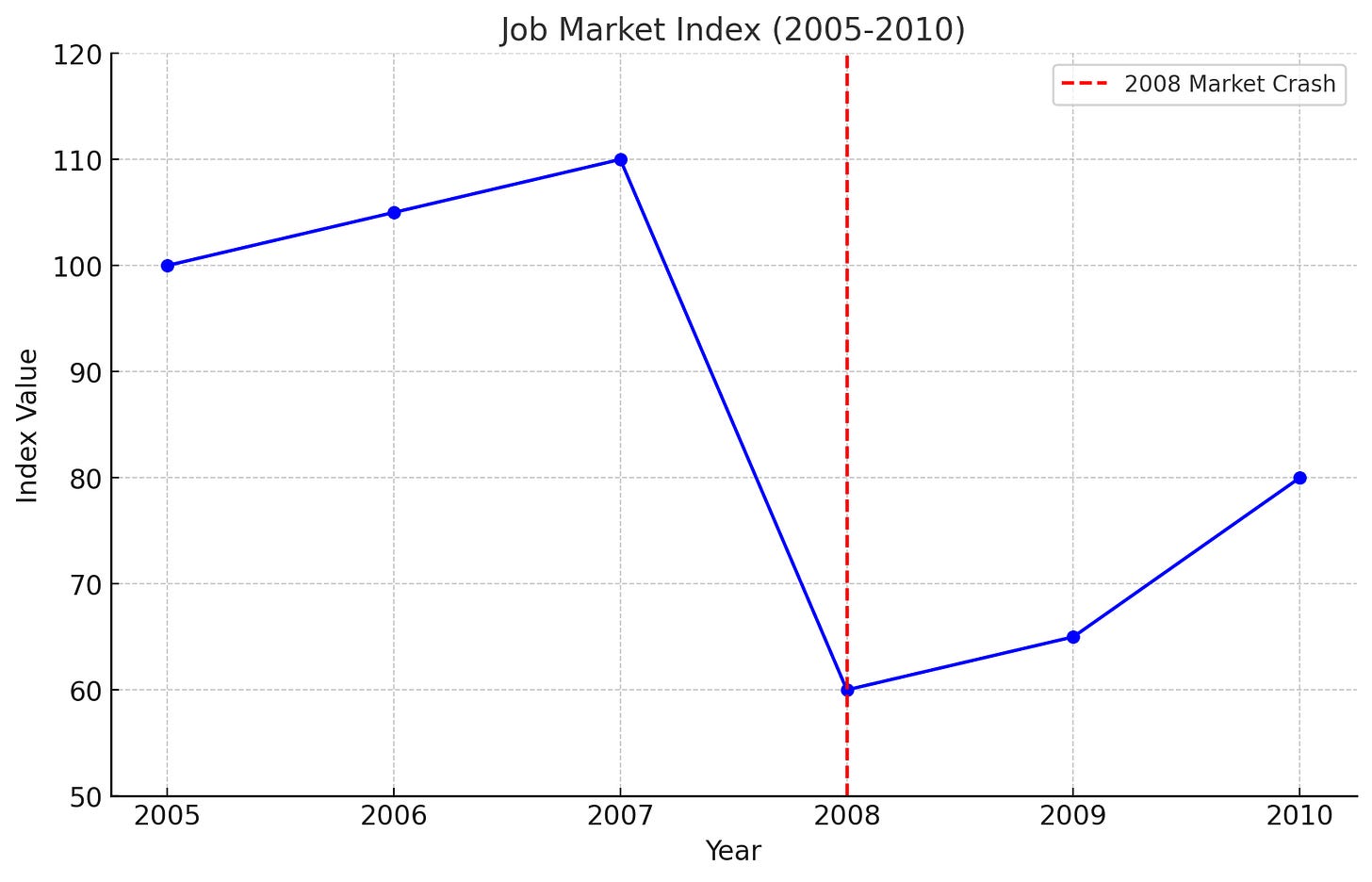
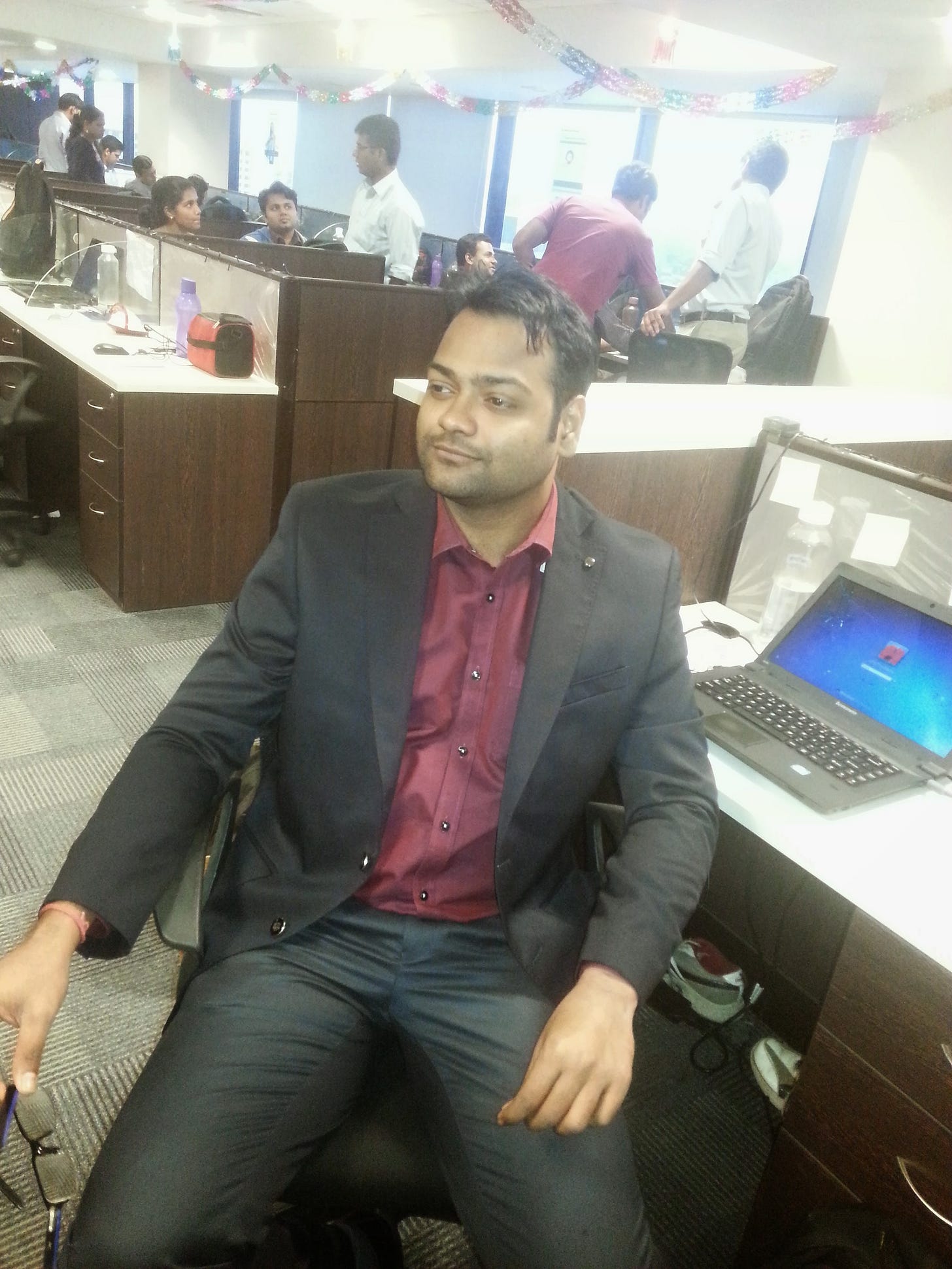
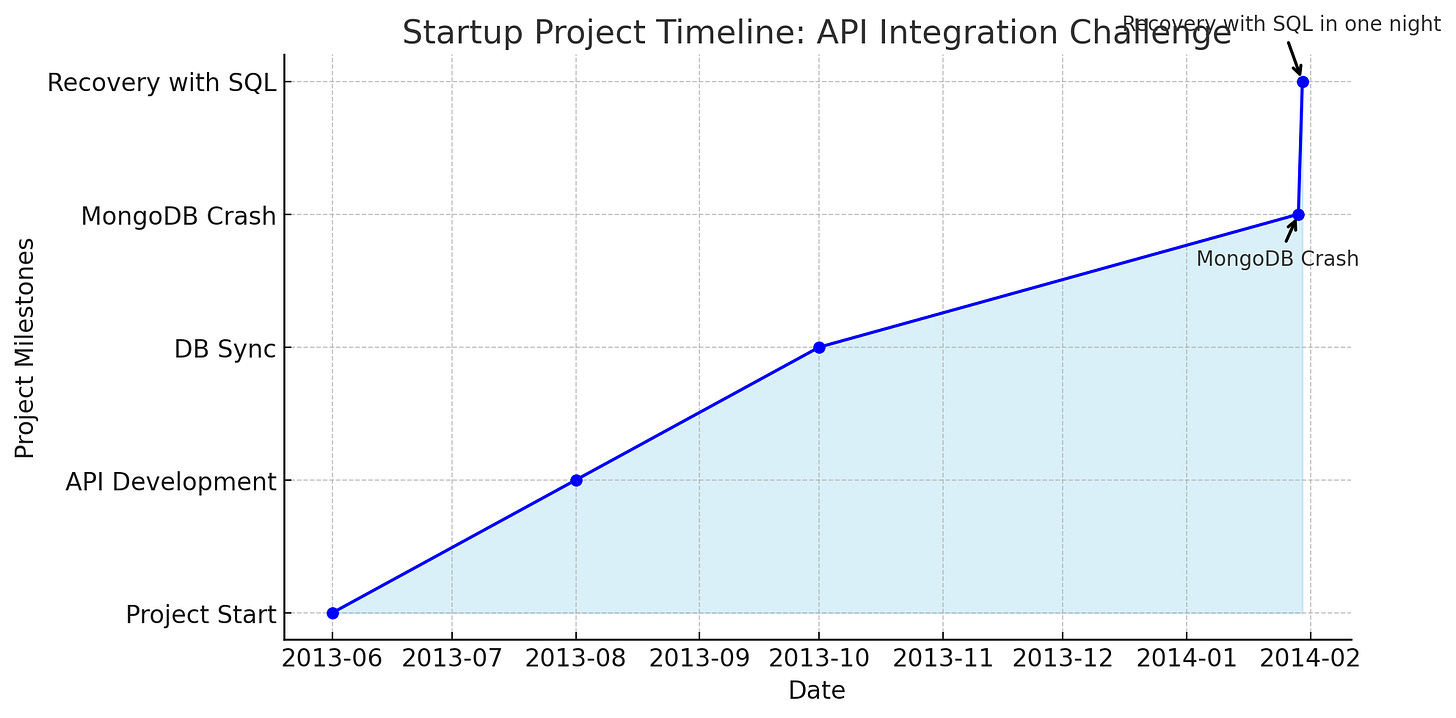

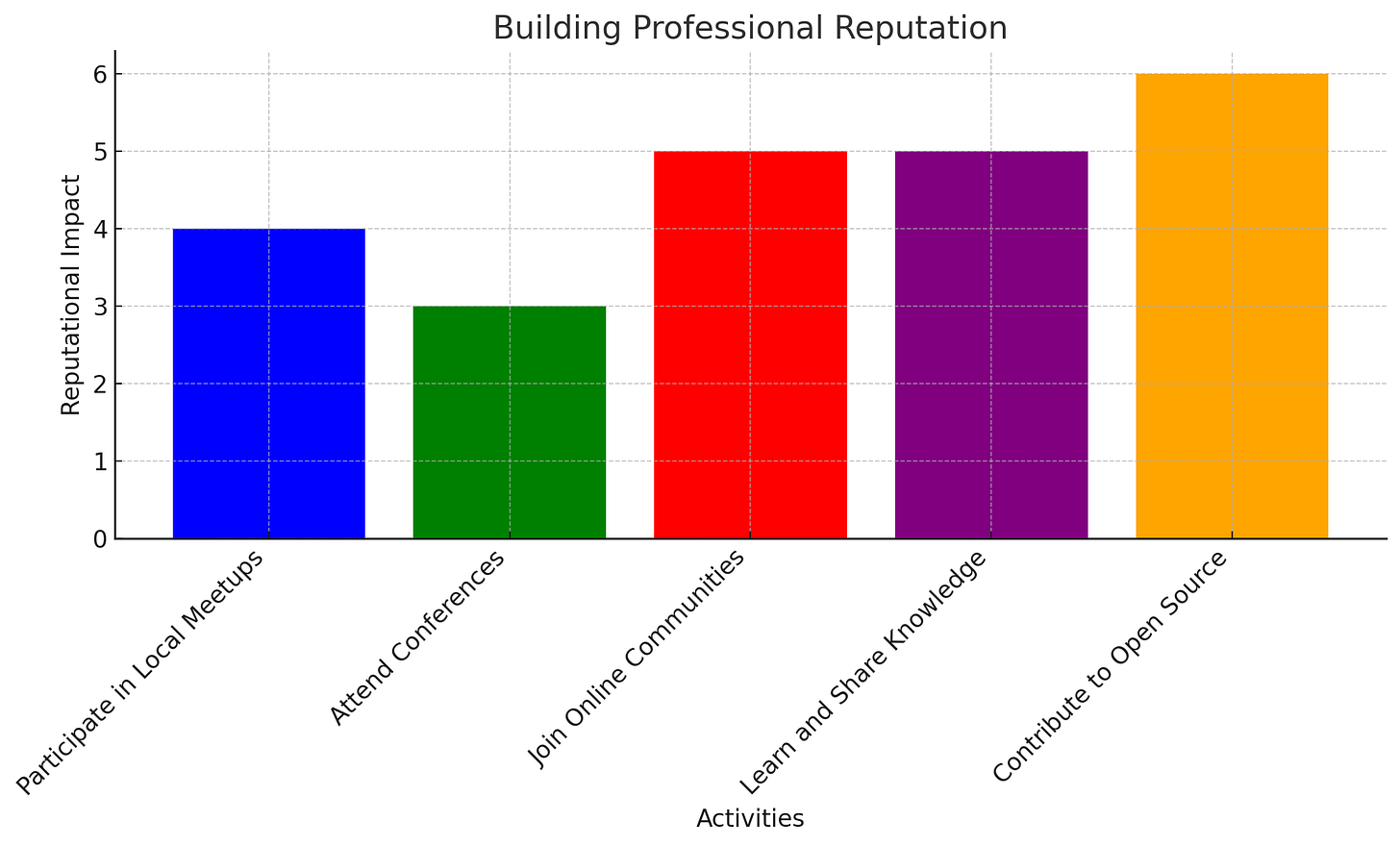
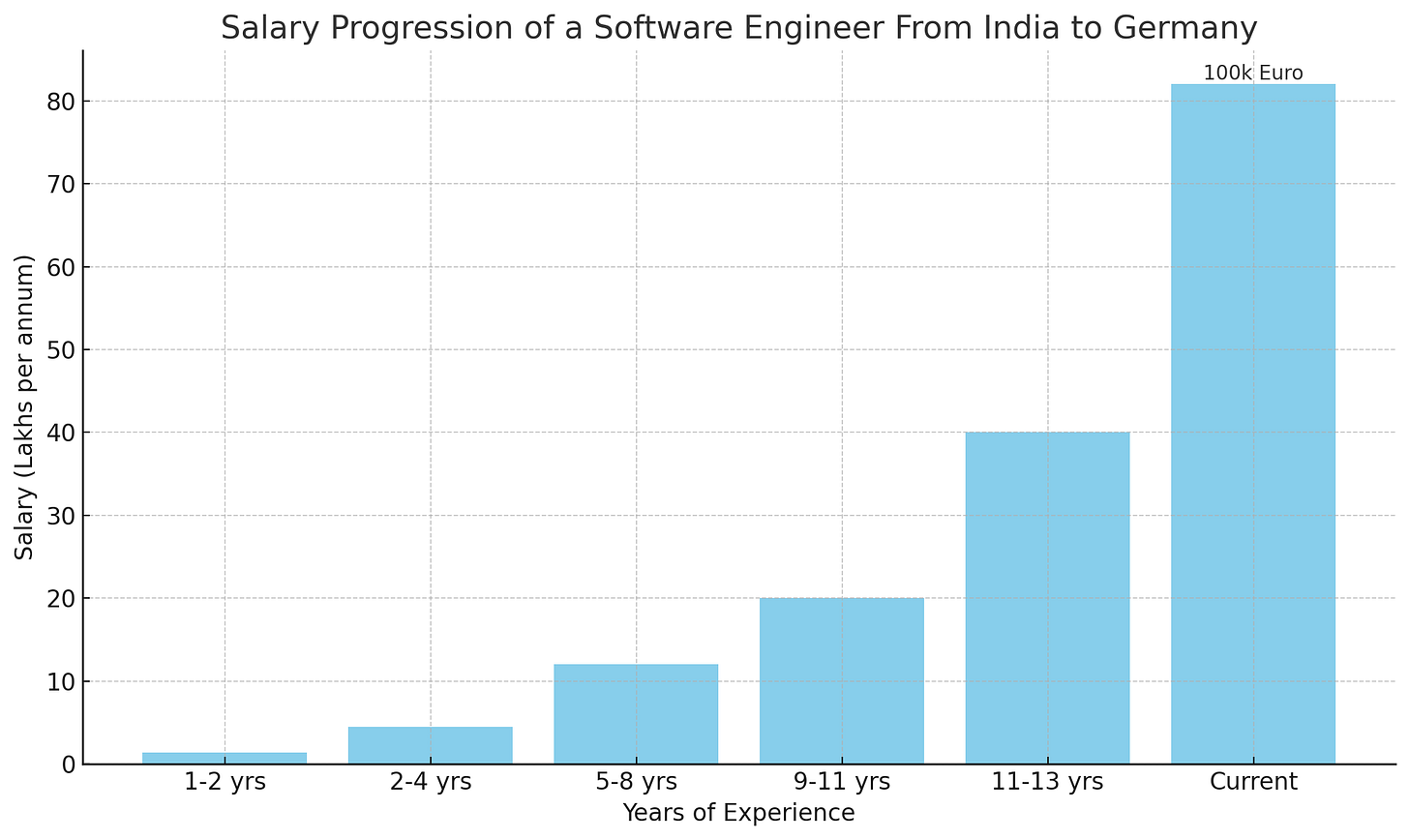
As usual, good writeup Ankur.
I am following your blog and I read some of your blog posts regarding blogging. Thanks for the motivation and everything.!